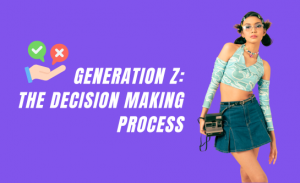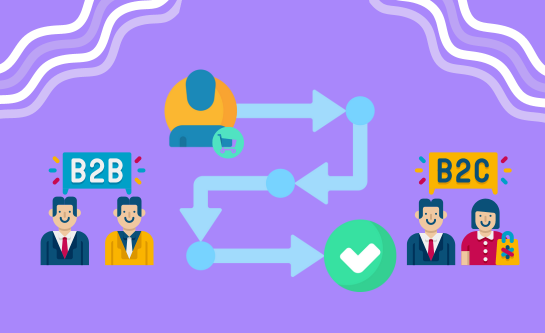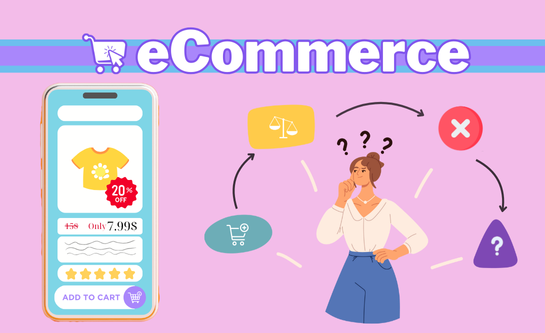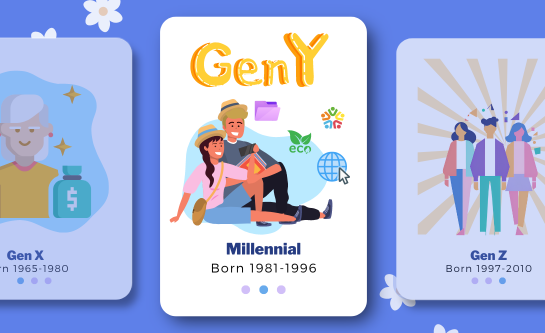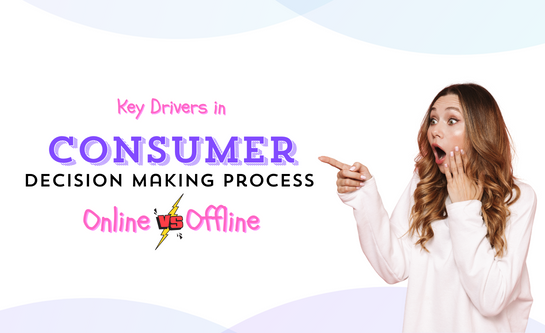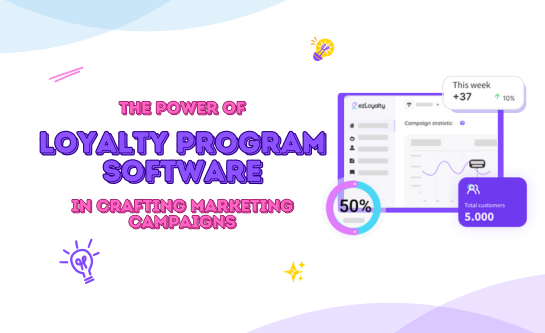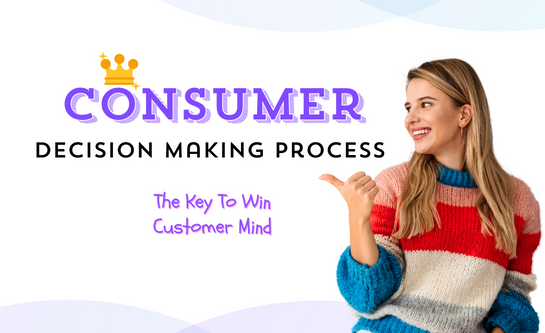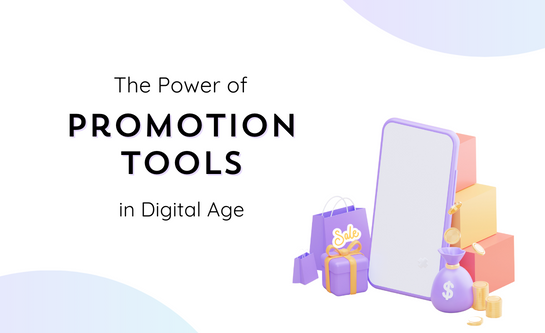Unlock the purchase decision-making process of Gen Z
 May 24th, 2024
May 24th, 2024
 508 views
3 MINS READ
508 views
3 MINS READ
Understanding the consumer decision-making process is crucial for businesses to thrive. Generation Z is one of the most potential segments, born roughly between the mid-1990s and early 2010s. This demographic cohort is characterized by its digital savvy, diversity, and unique preferences. Businesses must comprehend their distinct purchase decision-making process to target Gen Z consumers effectively. This article delves into the stages of this process, providing valuable insights for businesses seeking to engage with Gen Z effectively.
Gen Z: the decision-making process
Stage 1: Awareness
In the first stage of the Gen Z decision-making process, individuals become cognizant of a need or desire for a product or service. Gen Z often discovers new products through various channels, including social media, influencer recommendations, online reviews, and advertisements. Essentially, Gen Z is highly receptive to visual content, particularly on platforms like Instagram, TikTok, and YouTube. Businesses can leverage these channels to create brand awareness among Gen Z consumers. Furthermore, businesses should conduct short-form videos, user-generated content, and visually captivating imagery are particularly effective in capturing their attention. Essentially, making use of popular hashtags, challenges, and trends can also help brands increase their visibility among Gen Z audiences.
Stage 2: Research
Once Gen Z identifies a need or desire, they embark on thorough research to evaluate their options. Unlike previous generations, the purchase decision-making process of Gen Z relies heavily on digital platforms for research purposes. They scour websites, social media platforms, forums, and review sites to gather information, compare products, and assess their suitability. Businesses must ensure their online presence is strong, with easily accessible information, user-generated content, and positive reviews to sway Gen Z’s purchasing decisions in their favor.
Stage 3: Evaluation
During the evaluation stage, Gen Z carefully considers various factors before purchasing. Beyond product features and pricing, they prioritize values such as sustainability, social responsibility, and authenticity. Brands that align with Gen Z’s values and demonstrate transparency in their operations stand a better chance of winning their trust and loyalty. Additionally, seamless and personalized shopping experiences, along with hassle-free return policies, influence Gen Z’s evaluation of brands and products.
Stage 4: Purchase
Once Gen Z completes their evaluation and feels confident in their decision, they proceed to make a purchase. Convenience is key in the purchasing decision-making process of this generation, and businesses offering flexible payment options, fast shipping, and frictionless checkout processes are likely to win them over. Furthermore, Gen Z values the ability to purchase through multiple channels, including online platforms, mobile apps, and brick-and-mortar stores. Businesses must adapt their omnichannel strategies to cater to these preferences effectively.
Stage 5: Post-Purchase Experience
The Gen Z consumer journey doesn’t end with the decision to purchase; it extends into the post-purchase experience. This generation appreciates brands that prioritize customer satisfaction and engagement. Following a purchase, businesses can enhance the experience through personalized thank-you messages, exclusive offers, and opportunities for feedback and interaction. Additionally, taking feedback and actively listening to Gen Z’s opinions and preferences can demonstrate a commitment to continuous improvement and customer satisfaction. A loyalty program is a powerful strategy that enables businesses to collect feedback and create tailored offers to enhance Gen Z consumers’ satisfaction. Positive post-purchase experiences foster loyalty and advocacy among Gen Z consumers, driving repeat purchases and word-of-mouth referrals.
Wrap up
Understanding the consumer decision-making process of Gen Z is essential for businesses aiming to capture their attention and loyalty in today’s competitive landscape. By recognizing the key drivers in distinct stages of their journey and aligning strategies accordingly, businesses can effectively engage with Gen Z consumers and build lasting relationships. Embracing authenticity, transparency, convenience, and values that resonate with this generation will position brands for success in the evolving marketplace.
 Back to blog page
Back to blog page


























